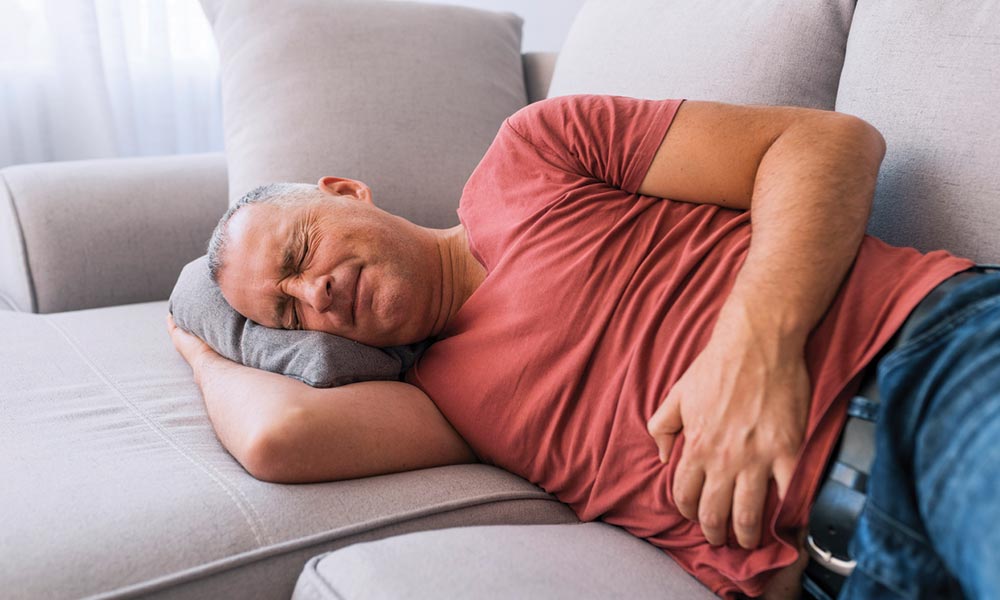Treatment for Constipation Relief: Laxatives, Diet Changes, & More

Every patient will indeed suffer from constipation at least once in a while, but when it becomes frequent or painful, it can really affect quality of life. Constipation is often connected with other conditions or diseases, which may be indicative of more serious problems, but many times it is managed with diet or lifestyle changes, and in some cases, medications. Read on to learn more about constipation, its causes, and how you can help relieve this painful problem.
More About Frequent Constipation
Doctors consider that a patient is constipated when they have hard, difficult-to-move stools and bowel movements. This may be accompanied by pain or pressure. In most cases, it’s a problem that will pass in a day or so, but sometimes constipation can persist for days or even up to a week. In these cases, and in cases where patients experience frequent constipation (such as in weekly), a doctor should be consulted to rule out other problems. Many serious GI conditions carry constipation as a symptom, so if you’re experiencing constipation along with other symptoms such as fatigue or weight loss, it’s time for a consultation. Chronic constipation could be comorbid with:
- irritable bowel syndrome
- Crohn’s disease
- ulcerative colitis
- colon cancer
These are only a few of the conditions that constipation can be associated with, so it’s best to consult your doctor if you have chronic constipation or several types of GI symptoms.
Lifestyle Changes for Constipation Relief
While constipation is often associated with other conditions, many times its root causes have to do with problems in the diet or is a reaction to certain medications (such as opioids). Your doctor will most likely take a look at what changes can be made first before recommending more aggressive treatment, such as medication. The number one reason constipation affects patients is due to a lack of fiber in the diet. Therefore, the best way to resolve many cases of constipation is to add more fiber to the diet. Both insoluble and soluble fibers are necessary to the diet. Insoluble types include whole grains, wheat bran, and vegetables, and soluble types include seeds, oat bran, barley, nuts, beans, lentils, and peas. Fiber supplements are also available, but it’s wise to receive your nutrients directly from the source when possible.
Doctors also recommend drinking more water, as this naturally loosens up the stool. Being dehydrated certainly leads to constipation, even in the healthiest of individuals. Drinking caffeinated coffee, provided it does not cause any other health issues, is also a recommendation and can help with constipation relief.
Taking probiotic supplements, or eating prebiotic foods, is also connected with constipation relief as well as overall digestive health. Prebiotic foods include garlic, onion, and bananas. Probiotics are also great for the digestive system and often come as a supplement, but you can also eat probiotic foods as well by eating sauerkraut, yogurt, or kimchi.
Other Ways to Relieve Constipation
For some patients, lifestyle changes won’t be enough, particularly if their constipation is caused by something like prescription medications. Your doctor may suggest over-the-counter laxatives, stimulant laxatives, or stool softeners to help. He or she may also recommend these options as a one-time-only solution if only to get the digestive system moving again. Some of these options, such as stimulant laxatives, can be harmful to the body if taken over time or for too long, so most of these are short-term solutions.
There are also things you can avoid, which may help constipation. Some doctors advise that patients should avoid dairy, as these foods and beverages are known to cause constipation in some. Also, avoiding a sedentary lifestyle is a wise idea not just for your digestive health, but for your overall health. To beat constipation, it’s recommended that patients exercise at least several times a week.
If you need more information about constipation or constipation-related problems or want to be seen by a physician, request an appointment at Gastroenterology Consultants of Savannah, P.C. today. We offer care at five locations in Georgia as well as one in South Carolina.